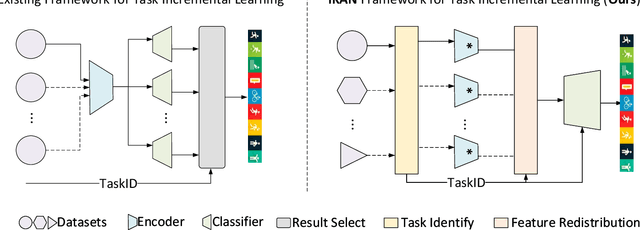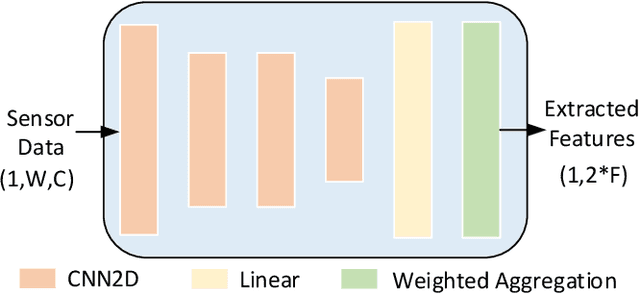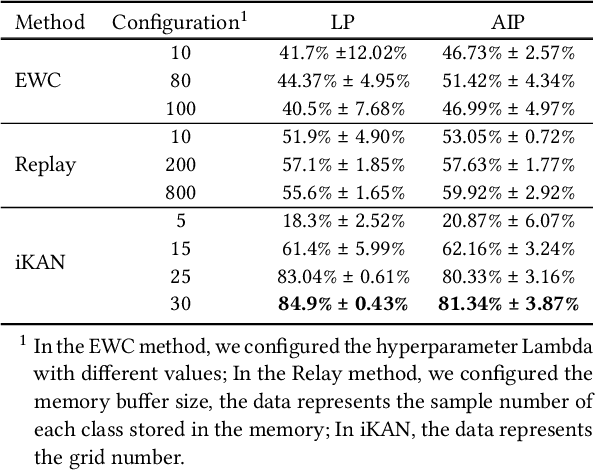iKAN: Global Incremental Learning with KAN for Human Activity Recognition Across Heterogeneous Datasets
Paper and Code
Jun 03, 2024



This work proposes an incremental learning (IL) framework for wearable sensor human activity recognition (HAR) that tackles two challenges simultaneously: catastrophic forgetting and non-uniform inputs. The scalable framework, iKAN, pioneers IL with Kolmogorov-Arnold Networks (KAN) to replace multi-layer perceptrons as the classifier that leverages the local plasticity and global stability of splines. To adapt KAN for HAR, iKAN uses task-specific feature branches and a feature redistribution layer. Unlike existing IL methods that primarily adjust the output dimension or the number of classifier nodes to adapt to new tasks, iKAN focuses on expanding the feature extraction branches to accommodate new inputs from different sensor modalities while maintaining consistent dimensions and the number of classifier outputs. Continual learning across six public HAR datasets demonstrated the iKAN framework's incremental learning performance, with a last performance of 84.9\% (weighted F1 score) and an average incremental performance of 81.34\%, which significantly outperforms the two existing incremental learning methods, such as EWC (51.42\%) and experience replay (59.92\%).
 Add to Chrome
Add to Chrome Add to Firefox
Add to Firefox Add to Edge
Add to Edge